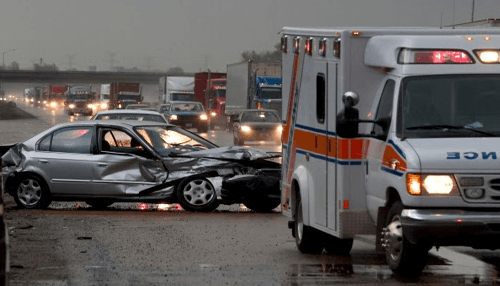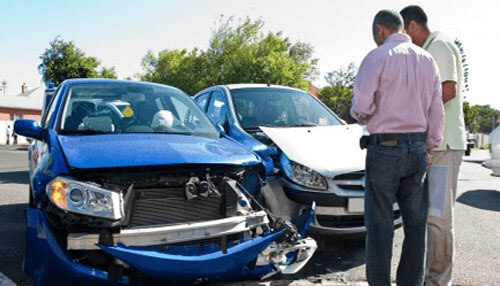A lot of people experience physical and psychological injuries after a road accident. Lives are even lost in the worst-case scenario. Unfortunately, sometimes the injured parties and their families don’t get compensated. Once you’re involved in an accident, you’ll want to file a police report. You’ll also want to follow up with your insurer or the insurer of the responsible party for an accident claim and personal injury insurance. This is important as it will get you compensated for any damages or injury caused as a result of the accident.
Insurance claims come in two different forms. They include:
- First-party insurance claims that you file with your insurance company
- Third-party insurance claim. This is the claim you file with the insurer of the party responsible for the accident.
Who was at fault when the accident happened determines the type of claim that is filed. It’s also determined by the type of accident and the extent of the insurance coverage. If, for instance, you were driving your car and caused an accident, you’d file a first-party claim with your insurer.
If you got involved in an accident while someone else was driving, then you’d file a third-party claim with the driver’s insurer.
Based on the policy of the insurance company, the incident should be reported as soon as possible. It could be as soon as 24 hours. After the report, the insurance company will open up independent investigations into your claim.
A settlement check gets issued once the insurer has calculated the value of your claim. If you feel that the settlement is inadequate, you’re at liberty to appeal to the insurance company.
There are also instances when the insurer may deny your claim. They are:
- If you wait too long to file your claim after the accident
- Whenever You fail to submit to an independent medical exam
- If the type of accident you were involved in is not covered under your insurance plan.
As you wait for your insurer to process your claim, you’re likely to get overwhelmed with financial needs. There are medical bills to take care of as you possibly spend time and energy fighting the other party in court. This can make your life a nightmare and that’s where applying for a car accident loan comes in.
You can apply for a car accident loan from a legal funding company to help with your financial needs. Car accident loans prevent individuals from bowing to the pressure of settling for less in a car accident lawsuit. It gives you the upper hand as you patiently wait for justice to be served.
The legal funding company also helps plaintiffs by ensuring that the insurer is held accountable. The car accident loan is repaid once the claim has been settled by the insurer.
Claiming Personal Injury Insurance After an Accident
Thousands of car accidents happen on our roads every year. Whether it involves bodily harm or property damage, it will entail a claim for damages or injuries. Whereas there are different types of accidents, steps taken to ensure you’re compensated are similar. This article will help you understand some of those steps. Let’s get to it.
1. Personal Injury Insurance Assess the Damage
Assess the damage to your car. Never assume that the damage will be minimal because the impact took place at a low speed. Look for dents, cracks on the lights, and any leakages.
If the car has minor damages and you think there’s no point involving your insurance company, negotiate with the other party and settle it.
2. Make a Police Report
Many people involved in accidents don’t involve the police. It could be for fear of the consequences that come with causing an accident if found to be at fault. But, failure to involve the police could bring about many legal complications. Involving the police protects you.
Once you make a report, you’ll be given a police event number. That number plays an important role when you contact your insurer for a car accident claim. The police report will serve as evidence for any claim you make to the insurer.
Insurance companies can reject your claim on the basis that there was no police report. Thus, it’s important that you immediately inform the police, especially in cases where:
- The driver is under the influence of drugs or liquor
- Someone is injured or dies
- Any of the parties involved in the accident refuses to exchange details
- There’s aggressive behavior from any of the parties
- There’s damage to structures
3. Personal Injury Insurance Seek Medical Attention
Many people think they’re fine after the accident and do not seek treatment. Only for their health to deteriorate a day or days later. Apart from slowing down your recovery, it also detriments the legal case.
You must get timely medical care for your injuries. Inform the medics that you’ve been involved in a car accident. After the medical treatment, ensure you follow through with any prescriptions you’re given.
Feel free to seek a second medical opinion if your symptoms do not resolve. Be sure to keep a record of any pain or symptoms as it will help with your treatment. A thorough medical record of your injuries will determine the success of your claim for personal injury insurance.
4. Contact Your Insurer on Personal Injury Insurance
Contact the insurance company to report the incident immediately after receiving treatment. The company’s representative will ask you some questions and send you a document to fill out. Provide them with all the information that will help in processing your claim for personal injury insurance. To avoid any surprises, review your coverage as well as exclusions.
It’s also important that you keep detailed notes of your conversations. This includes names, titles, dates, and times. It’s most likely that the insurer will investigate the incident. So, you must be honest with all the information you provide. Failure to provide all the facts could cause a denial of your claim.
Avoid giving written or recorded statements if you don’t understand your coverage. Talk to an attorney if in doubt.
5. Take Pictures and Write Down Everything
If you’re unable to document everything about the accident, have a friend or relative do it for you. Let them take videos and pictures of your injuries and damage to your car. That documentation will come in handy if you don’t get a favorable settlement from the insurer. It will also be helpful if you decide to get a car accident attorney.
Injuries like cuts and bruises heal quickly. So taking photos is very necessary.
6. Document the Expenses Related to Your Claim
Car accidents can be horrendous. There are instances when you’ll encounter financial challenges. You’ll also probably incur expenses as the insurance company processes your claim. Therefore, ensure that you write down all the expenses. Just in case you’ll need to file a lawsuit.
Keep a notebook and the receipts of all the expenses. That may include:
- Medical care and supplies
- Expenses for alternative transportation
- Expenses from relatives and friends who had to chip in
- Private investigation reports
- Police reports
Also, keep in mind that what documentation you need will be determined by the nature of the accident. It will also be determined by the sustained injuries and the damages to your car.
7. Speak to an Attorney
Avoid signing any document that you do not understand. Hire a legal representative to protect your rights. This is the best way to deal with an accident whose seriousness you don’t know. You may not even know if you’re at fault or not.
You need to get an attorney if the following conditions apply:
- If someone died in the accident
- If there are non-economic losses such as trauma
- In case the paperwork doesn’t look accurate
- If the insurance company isn’t playing nice
- If there’s a dispute between you and the other involved party over who is at fault
A competent attorney will fight to ensure you’re compensated by your insurer.
Final Take
There’s no need to file a personal injury lawsuit against the insurer when involved in an accident. Following the steps provided in this article will help you get your claim. But, if the insurer decides to be difficult, then you can initiate a legal process and ensure you get your compensation.



